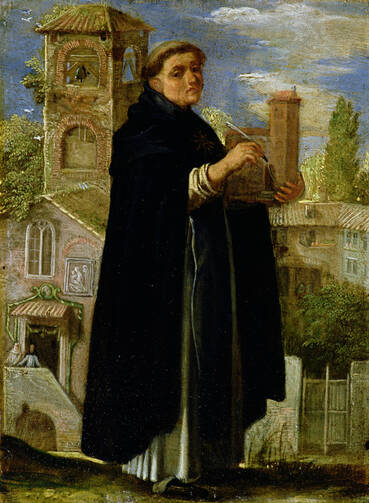One of my favorite thinkers is the great Catholic French philosopher Etienne Gilson. His work The Spirit of Medieval Philosophy, so crucial to Thomas Merton's turn to Catholicism, has become a milepost for my own faith development. So too his God and Philosophy, which I first read as a senior at Saint Louis University, and which, as well as anything I've read, traces the presuppositions of the dominant approaches to God's existence. For me, Gilson is not merely a philosopher; he is a cartographer. His work reveals the landscape of the intellect and its possibilities in their totality.
This week, as I enjoy a few days' break from teaching, I once again find myself edified by his thought, in particular passages from his The Christian Philosophy of St. Thomas Aquinas. They are lines that remind me of how different it is to be a teacher within the Christian tradition, and more particularly within the Catholic tradition. In the opening pages of the book, Gilson reflects on Aquinas as a doctor, as a teacher, and writes:
"Teaching (doctrina) consists in communicating to others a truth meditated beforehand. It demands of necessity both the reflection of the contemplative in order to discover the truth, and the activity of the professor in order to communicate his findings to others. But the most remarkable thing about this complex activity is that there is an exact correspondence between the higher and the lower, between contemplation and action."
It makes me think: How many teachers meditate on the truths they teach? How many consider contemplation to be essential for their work in the classroom, and not just any contemplation, but a prayerful contemplation, a contemplation anticipating the sacred? I think if we take Gilson's -- and Aquinas's -- thought seriously, it imbues our days with a special reverence for our work and for our call. We are building bridges for the conveyance of essential things. To borrow from Gilson, "To contemplate truth by his intellect and to communicate it out of love, such is the life of the Doctor. It is an exalted human imitation of the very life of God."








